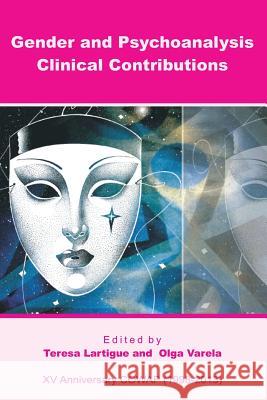Gender and Psychoanalysis. Clinical Contributions » książka
Gender and Psychoanalysis. Clinical Contributions
ISBN-13: 9786079137137 / Angielski / Miękka / 2013 / 240 str.
GENDER AND PSYCHOANALYSIS. CLINICAL CONTRIBUTIONS is a book addressed to psychotherapists, psychoanalysts and other mental health professionals dealing with gender studies and human parenthood. It is also valuable to all those persons interested in understanding the complex network of the relationship between men and women. It contains also narratives of the suffering of women due to invisible violence, losses around motherhood, loss of a partner, of a father, a sister, and others. The book is composed of three parts, the first one includes clinical perspectives, with contributions from Doris Berlin, Matilde Ureta, Debora R. Unikowsky, Luz Maria Abatangelo, Silvia Jadur, Constanza Duhalde, Viviana Wainstein, Teresa Flores, Carmen R. Zelaya and Johanna Mendoza. They generously present to us some vignettes from their work in the consulting room. One understands that the clinical setting is the main resource that can guide us in developing new knowledge about the acquisition of a feminine or masculine identity. The second section is devoted to theoretical perspectives. Mariam Alizade, Alicia Briseno, Dolores Montilla, Josephine Quallenberg and Olga Varela write about that fluid, receptive and elusive world of women. It also contains the now almost irrelevant tendency of some feminine studies to see men as the enemy. It also covers the impact on men of the sudden realization that there is a pregnancy. This section is also an homage to Anna Freud, who was a cornerstone of psychoanalysis for many years of growth and expansion. It is also in honor of Julia Kristeva, Bulgarian linguist who lived in Paris. She used to say that psychoanalyses are passionate or sad narratives, but they always end up in profound love stories. In the third portion we address issues of research, where Candida Se Holovko, Edoarda Paron Radvany, Elizabeth Haworth, Teresa Lartigue, Delia de la Cerda, Itzel Gonzalez, Martha Perez Calderon, Juan Vives, Patricia Davila, Jose Cuenca, Martin Maldonado-Duran, Manuel Morales, Kenia Gomez, Ahmed Maher, Matthew Brown and Angela Camacho-Duran show the consequences of poverty and social inequality on marginalized populations, as well as in pregnant women with sexually transmitted diseases such as VIH, as well as those who are depressed or manifest suicidal ideation. These contributors highlight the severity of maternal and paternal psychopathology and the need to diagnose the situation in depth and to design multiple interventions to address the individual needs. The book Gender and Psychoanalysis, as a unit, conveys a feeling of hope, that COWAP, as well as the rest of the psychoanalytic community, can do much for women and their families. We are convinced that all violence leads to damage and suffering, no matter in which culture it occurs."











